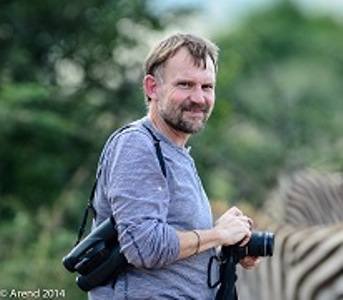September 2016
Arguably best known for its assessments of the status of species for its ‘Red List’ database, the IUCN is the world’s largest and most diverse environmental network. Its 1,300 members include governments, government agencies, non-governmental organisations and private sector companies. The Born Free Foundation secured its membership of IUCN in April 2016, and attended the Congress as a full voting member for the first time, alongside several of our Link partners.
Themed ‘Planet at the Crossroads’, the meeting in Hawaii took place against a backdrop of ever-increasing pressure on the natural world. The catastrophic destruction and degradation of nature, unprecedented species declines, and the associated negative impacts on human livelihoods and security are constantly in the news. Just days before the Congress opened, US President Barack Obama announced the expansion of the Papahanaumokuakea marine national monument, which at more than twice the size of Texas, is now the largest marine protected area in the world.
The protection and promotion of human interests and the value of natural resources to human well-being also featured heavily, with a big emphasis on respecting indigenous knowledge and protecting indigenous rights, particularly pertinent given the Congress’s location. The high-level output from the Congress, in the shape of the ‘Hawai’i Commitments’, reflected these broad aspirations.
But the World Conservation Congress isn’t just a forum for the exchange of information and ideas between nature conservation interests and a means of articulating high-brow nature protection values. It also has a significant political focus, principally through the development of motions aimed at expressing the global conservation community’s collective opinion on a range of issues.
While IUCN motions have no legal status, they can be hugely influential, perhaps particularly this year with other binding international meetings just over the horizon, including the 17th Conference of the Parties to the Convention on International Trade in Endangered Species of Wild Fauna and Flora (CITES) later in September, and the International Whaling Commission’s 66th meeting in Slovenia in October. Motions calling for greater protection for pangolin species from international trade, actions to avoid the extinction of Mexico’s Vaquita porpoise, improved conservation of Amur tigers and leopards, silky and thresher sharks and mobular rays, the establishment of a South Atlantic Whale Sanctuary of which Born Free was a co-sponsor, and expressing concerns about whaling under special permits, could be particularly significant; in some of these cases, the IUCN has urged or encouraged governments to take specific action at CITES, IWC and other forums.
Other motions were clearly, if indirectly, critical of the actions (or lack thereof) of certain governments, such as the motion to protect bats from culling and to ban the use of the veterinary medicine Diclofenac in livestock. The motion calling for the termination of captive-bred lion hunting seemed to be directed at the South African government, in the face of increasing global public concern over so-called ‘canned hunting’, a campaign in which Born Free is heavily invested.
The motion that resulted in the most heated debate called for the IUCN to support and encourage the closure of domestic markets for elephant ivory. Elephant populations across Africa are being devastated by poaching to supply ivory into global markets; census data released at the Congress outlined 30% declines in savannah elephants over just 7 years, with forest elephants faring even worse. There is increasing recognition that elephant populations cannot thrive in the face of any trade in ivory and markets have closed or are being closed in many countries, including the United States, China, Hong Kong and France. But a small number of countries, including Namibia, South Africa, Zimbabwe and Japan, continue to insist on maintaining a domestic ivory trade. In the end the motion passed with its original strong wording intact, but not before some government delegates had allegedly threatened to withdraw from the Union.
Ultimately, the IUCN cannot force governments to take action; it can only ‘urge’ and ‘encourage’. The real test of the international community’s resolve will come at legally binding international forums such as CITES and the IWC, as well as through the individual and collective actions of governments, supported by the wider conservation community.
Nevertheless, the IUCN represents the powerful and influential voice of the global conservation community. The world’s decision makers would do well to take heed.
Mark Jones
Chair, Wildlife Crime and Trade Group
Associate Director, Multilateral Environmental Agreements and UK Wildlife, Born Free Foundation
Find me on twitter @fishvetmj
The opinions expressed in this blog are the author’s and not necessarily those of the wider Link membership.
Aspects of this blog were originally published on another website.




Latest Blog Posts